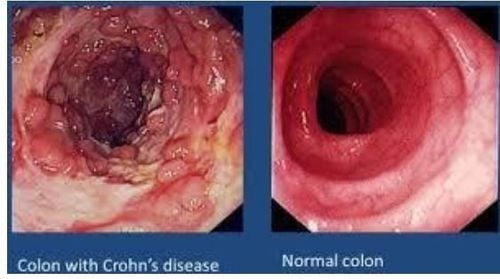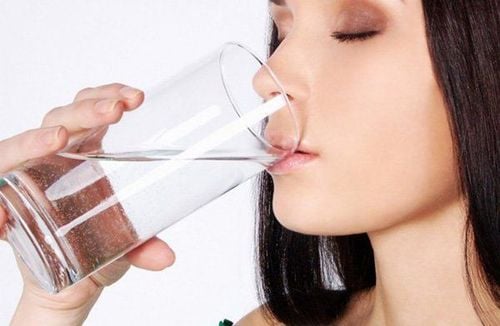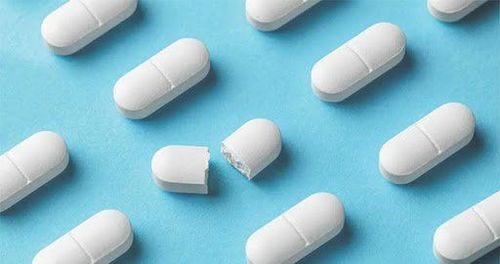This is an automatically translated article.
Drinking coffee is one of the habits of many people today. Despite its mild diuretic effect, caffeine intake does not usually increase the body's risk of dehydration.
1. Effects of caffeine and hydration
Coffee is rich in caffeine - a stimulant of the nervous system. Drinking coffee helps improve mood, improve physical performance (due to the effects of caffeine). After the user enjoys coffee, the caffeine will reach the intestines, the blood, and the liver. In the liver, caffeine is broken down into many compounds, which can affect the functioning of organs in the body.
Caffeine has many effects on the brain. In addition, it can also have a diuretic effect on the kidneys if used in high doses. So the more caffeine you consume, the more it affects hydration. More understandable, caffeine can cause dehydration. Some studies have shown that caffeine has the strongest diuretic effect in people who previously infrequently drank but suddenly drank too much coffee.

Caffein giúp tinh thần tỉnh táo
2. Coffee doesn't dehydrate
Although the caffeine in coffee has a diuretic effect, it does not make the user dehydrated. In fact, studies show that for caffeine to have a significant diuretic effect, you need to consume more than 500mg of caffeine per day - the equivalent of drinking about 5 cups or 1.2 liters of filtered coffee.
A trial was carried out on 10 normal coffee drinkers to evaluate the effects of drinking 200ml of coffee containing 269mg caffeine and coffee containing 537mg caffeine on the body's dehydration. The results showed that the coffee with the higher caffeine content had a short-term diuretic effect. Coffee with lower caffeine content still hydrates the body like regular water.
Another study performed on 50 coffee addicts with nearly 300mg of caffeine/time (3 cups of coffee - 710ml) per day for 3 days. The results showed that urine output only increased by about 190ml compared to drinking the same amount of caffeine-free beverage. However, this trial was conducted for a short period of time in healthy subjects who were used to drinking a lot of coffee. Therefore, people who drink less coffee should not replace filtered water with coffee.
Coffee can cause some side effects such as insomnia, fast heart rate, irritability, anxiety, restlessness and irritability. Drinking coffee with a lot of milk and sugar also affects health and weight. In addition, for women who are pregnant, high caffeine consumption can increase the risk of miscarriage or premature birth. Therefore, each person should not drink too much coffee.
To recognize the lack of water in the body, you can observe the color of the urine. The darker the urine color, the more dehydrated the body is. At this time, you need to rehydrate your body by adding more water.
Drinking coffee in small amounts contributes to adding more water to the body. Coffee only causes some signs of dehydration if you drink at least five cups at the same time of day. Accordingly, you should not drink so much coffee, especially when you are at risk of dehydration (vomiting, diarrhea, kidney problems). In addition, people who are taking diuretics also need to consider the amount of caffeine they consume.
Please dial HOTLINE for more information or register for an appointment HERE. Download MyVinmec app to make appointments faster and to manage your bookings easily.
Reference source: mayoclinic.org













